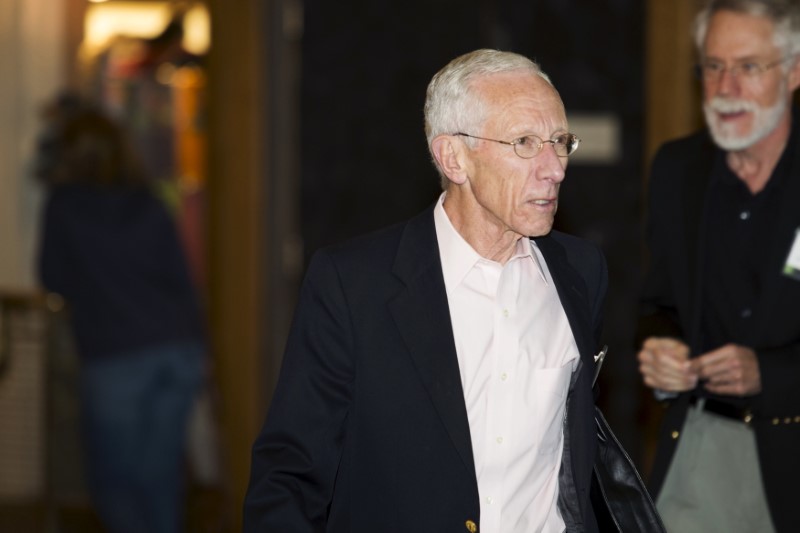By Anthony Esposito and Rosalba O'Brien
SANTIAGO (Reuters) - U.S. economic growth prospects appear strong enough for the Federal Reserve to proceed with gradual interest rate rises but the central bank is monitoring an increase in long-term U.S. government borrowing costs, Fed Vice Chair Stanley Fischer said on Friday.
Since Republican Donald Trump was elected U.S. president on Tuesday, the 10-year Treasury yield has risen.
"Of course we will watch events and depending on how the market turns out and how the economy turns out we will adjust our policy if we think that's necessary," Fischer said in his first remarks since the U.S. election, speaking by videolink to a central banking conference in Santiago, Chile.
"But if you ask me in which direction (it) could have an impact, I am not even sure that I could answer that question."
Earlier in prepared remarks, the U.S. central bank's second-in-command said the current economic outlook was consistent with a gradual increase in interest rates.
Fischer said the Fed was "reasonably close" to achieving its employment and inflation goals, and the case for tightening monetary policy "quite strong" as a result.
"In my view, the prospects of a continued steady expansion in the U.S. economy are maximized to the extent that we proceed with a gradual removal of accommodation," Fischer said. He added not doing so runs the risk of having to tighten more abruptly later on.
Fischer did not directly mention the outcome of the U.S. presidential election during the event but appeared to welcome the prospect of more fiscal stimulus, which the Fed has been urging to take the burden for growth off monetary policy.
"On more expansionary fiscal policy, I think many members of the open market committee and of the Federal Reserve Board have commented it would be useful to have a more expansionary fiscal policy," Fischer said.
Some other Fed officials have more openly embraced the prospect of a unified government and new infrastructure spending after years of political gridlock in Washington that has curtailed longer-term growth prospects.
The Fed is widely expected to raise interest rates in December but has repeatedly warned that they would rise very slowly over the next few years due to an aging population and slow productivity growth.
The benchmark overnight lending rate remains close to zero seven years after recession ended.
Fischer also said he was "reasonably confident" that spillovers from the Fed raising interest rates would prove manageable for foreign economies to which the United States is interlinked by trade and financial channels.

However, he cautioned that should the U.S. have to raise rates more rapidly it "could exert noticeably larger spillovers abroad by putting more upward pressure on foreign interest rates and by inducing larger depreciations of foreign currencies."